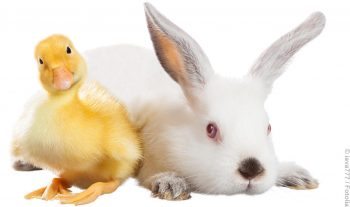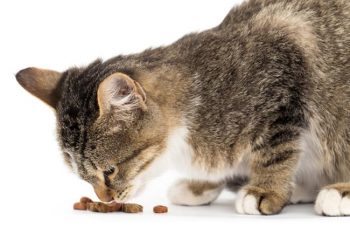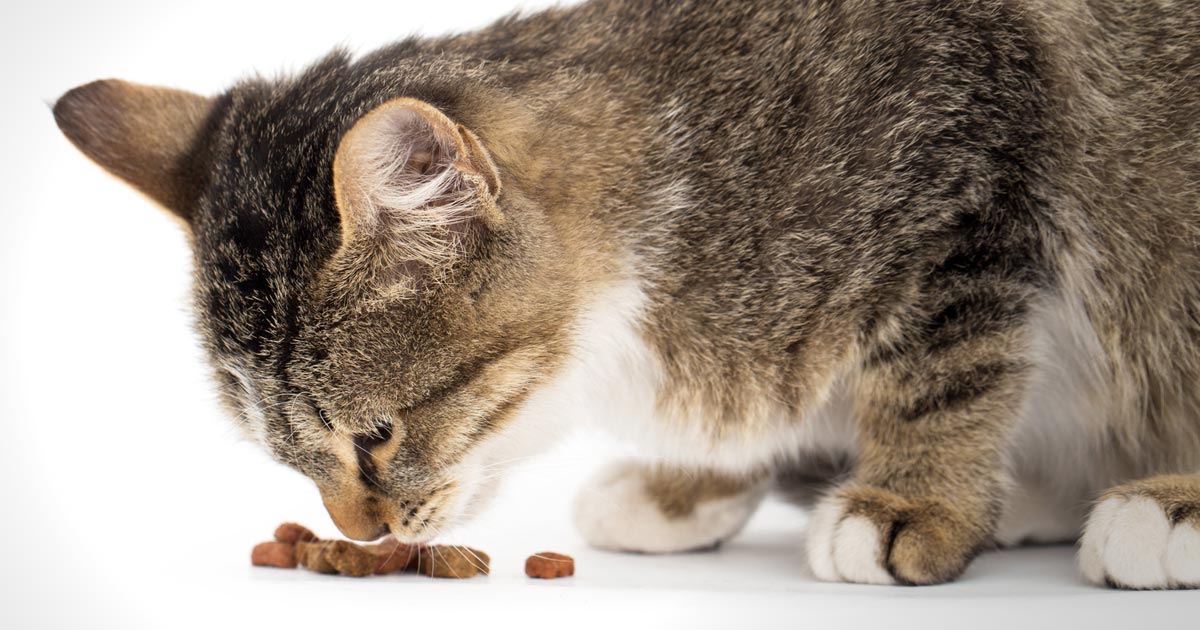Every so often, something reminds me – and I start to wonder. When I start to wonder, I begin to feel a sense of moral panic that threatens to underline pretty much all my life choices – so I generally stop thinking about it as soon as I can.
 Here’s the latest thing: at the end of a routine cat consultation, I nipped into storage to pick up a bag of food for the client; rabbit and duck kibbles for their pet’s sensitive digestive system.
Here’s the latest thing: at the end of a routine cat consultation, I nipped into storage to pick up a bag of food for the client; rabbit and duck kibbles for their pet’s sensitive digestive system.
The client thanked me and headed out of the door, while I called in my next consultation.
A rabbit.
You’ll never guess what the next one was…
Totally quackers
After the duck waddled its way out of the consulting room, loaded with enrofloxacin (other antibiotics are available, though not necessarily licensed), that thought – the one that has nagged at me through the years – struck again.
It’s the thought I try to avoid thinking when I draw up vaccines, or when I pick drugs off the shelf; the thought that makes life rather more complicated than I’d like it to be. Why is it, the thought nags, the lucky house rabbit I just saw is going to be admitted tomorrow to sort out its dental abscess, when many more end up inside bags of food such as the one I gave to the preceding patient?
I have no reason to believe the ones that ended up in the bag had any less capacity to suffer than the one I’m trying to help, and it’s likely the ducks that ended up mingled with them wanted to remain alive just as much as Jemima, whose clinical notes I was typing up.
Moral justifications

Many vaccines I use to prevent disease in animals have been tested in toxicity trials on other animals, each batch representing a new round of testing.
The same goes for most drugs I pick off the shelf (I’m not entirely sure about the details, partly because I’m the sort of moral coward who doesn’t really want to know – life’s complicated enough, right?). I feel uncomfortable enough about the moral justifiability of testing medicines on animals for the benefit of humans.
One of my great heroes, English philosopher and social reformer Jeremy Bentham, said: “The question is not ‘can they talk?’, nor ‘can they reason?’, but ‘can they suffer?’” – and boy, can animals suffer. So much so, most of us have dedicated large parts of our lives to try and reduce it.
It gets more difficult when you have to make a choice, when something has to suffer and you have to choose what – I don’t know how you do it, but the only way I can dig myself out of the moral quagmire is to think about capacity for suffering.
Who suffers more?
Here’s what I mean: almost every creature can suffer, but differences exist in how much they are able to suffer. This is, of course, extremely hard to define, but it seems not uncontroversial to suggest a worm can suffer more than a cauliflower. Similarly, it seems – simply from physiological mechanisms such as nervous systems – a mouse can suffer greater distress than a worm.
Humans, blessed with our highly developed cerebral cortexes, can (perhaps) suffer most of all, largely because of our ability to look ahead – a useful tactic if you need to work out a way to bring down a woolly mammoth, less useful if you’ve just learned you have a terminal disease.
Here’s my point and problem (rather laboured at this point, I know, but when it comes to moral quandaries I like to show my working). I can (just about) see the moral justification for testing human medication on animals (although I do believe justification rests on shaky foundations; I haven’t even considered questions such as informed consent and testing of pharmaceutical products – I’ll leave that can of worms unopened, lest this post turns into a rant). However, I really struggle to see how we can justify testing medication intended for use on an animal on another.
Hypocritically thinking

I struggle to understand why it is horrible to think of horse meat in the human food chain when it’s filled with creatures that have just as much (and arguably much more, in the case of pigs) capacity to suffer. I get confused when I treat one rabbit, but feed another to a cat – both, apparently, in the same cause of reducing suffering for animals.
In short, it seems to me a huge iceberg of hypocrisy is floating just under the feet of the way humanity treats other animals. Every so often, I get a glimpse of the size of it – and it sets my mind spinning. Me being me, of course, I quickly ignore the problem. It’s too big. It’s too big for me. It’s too entrenched in our species.
Will future humans look back at us and wonder how we managed to pretend we cared about them at all? I don’t know. I don’t even know if I’m right. But sometimes, late at night, I think of the cat, the rabbit and the duck, and think of George Orwell – maybe the phrase was more accurate than he ever intended.
“All animals are equal, but some animals are more equal than others.”

Leave a Reply